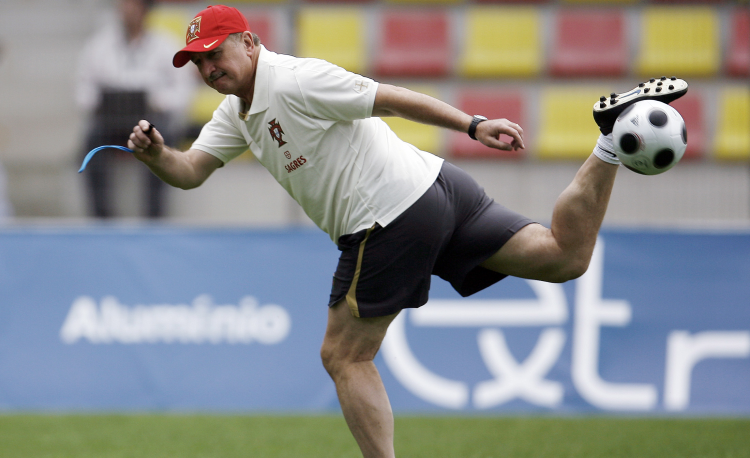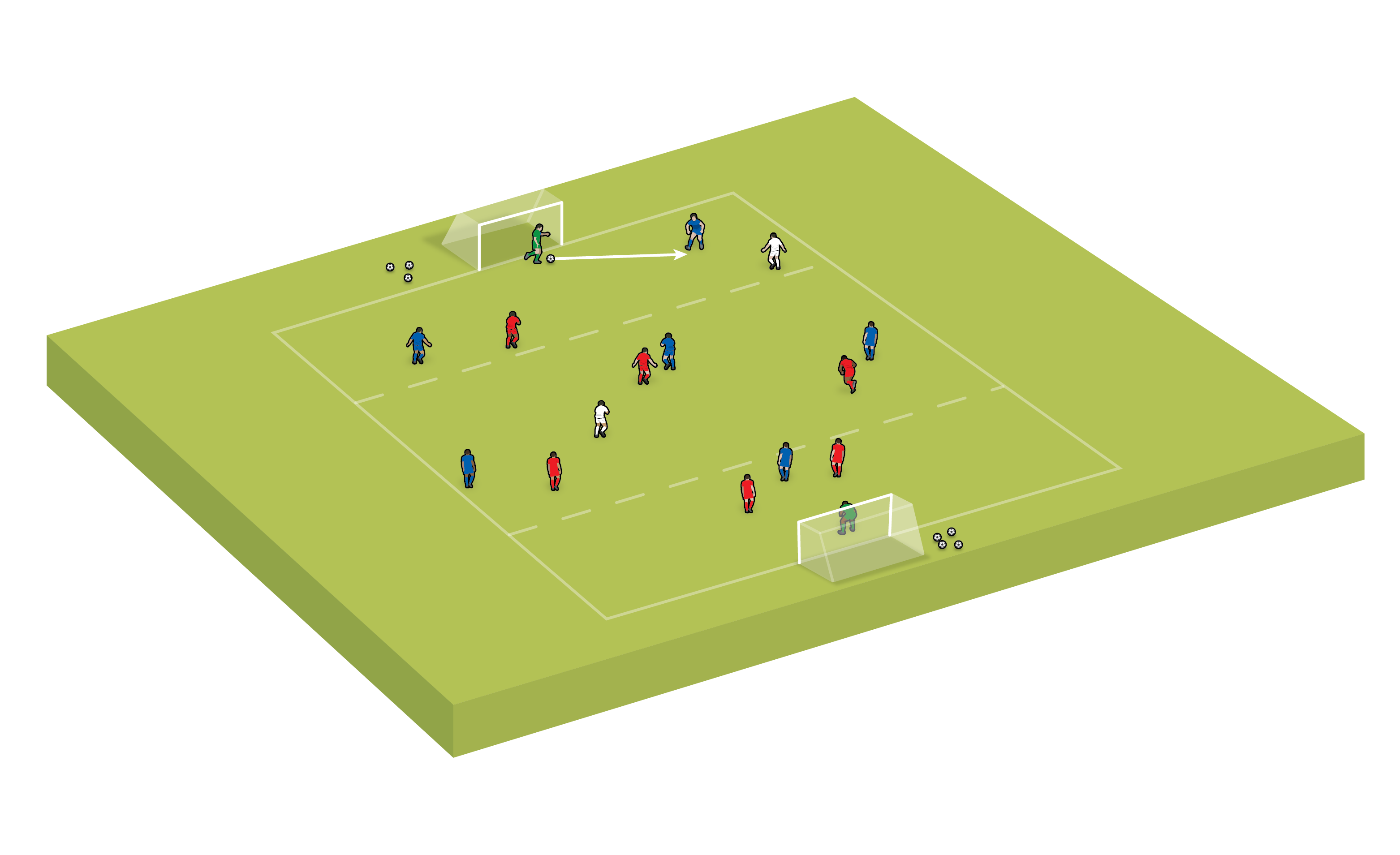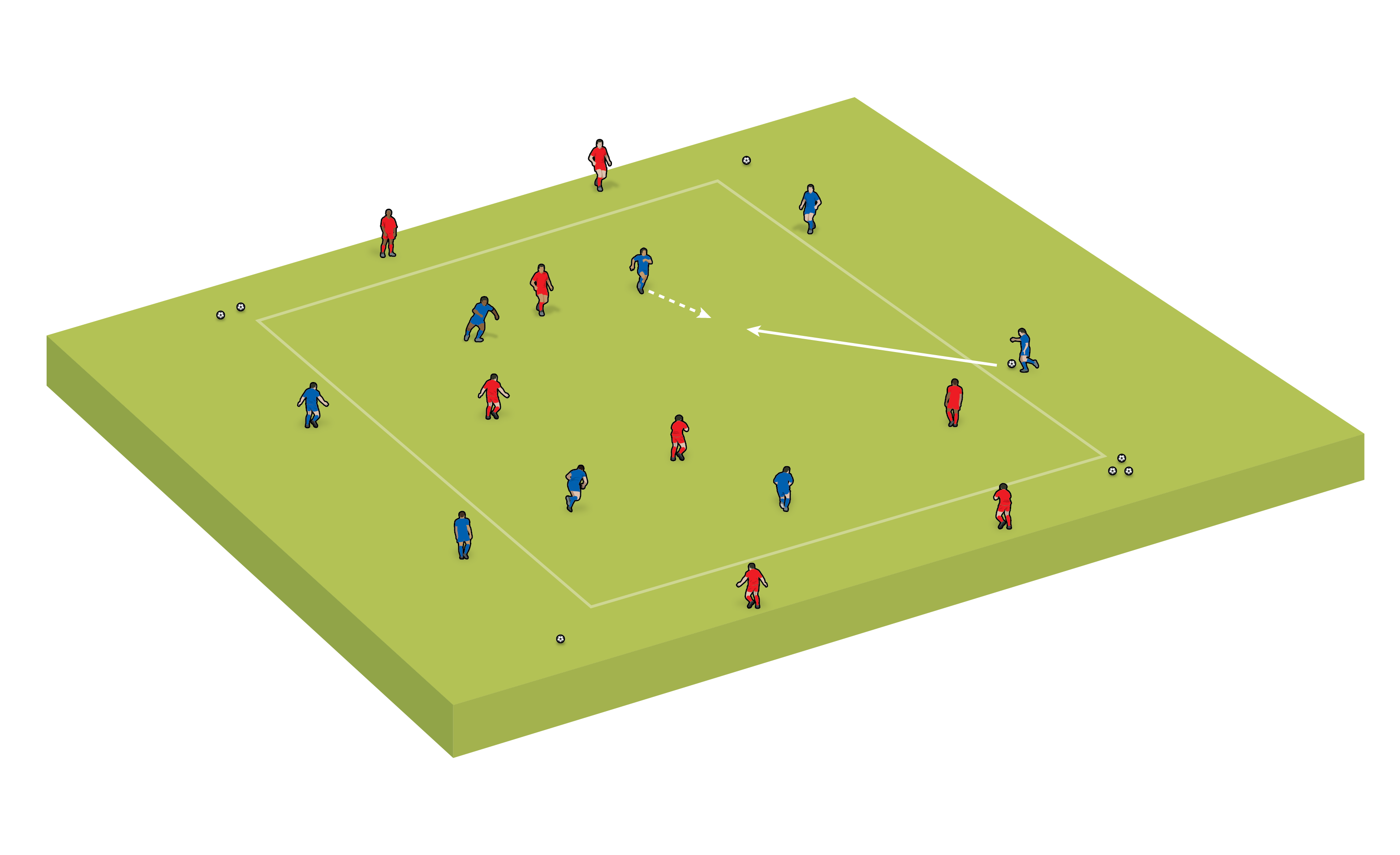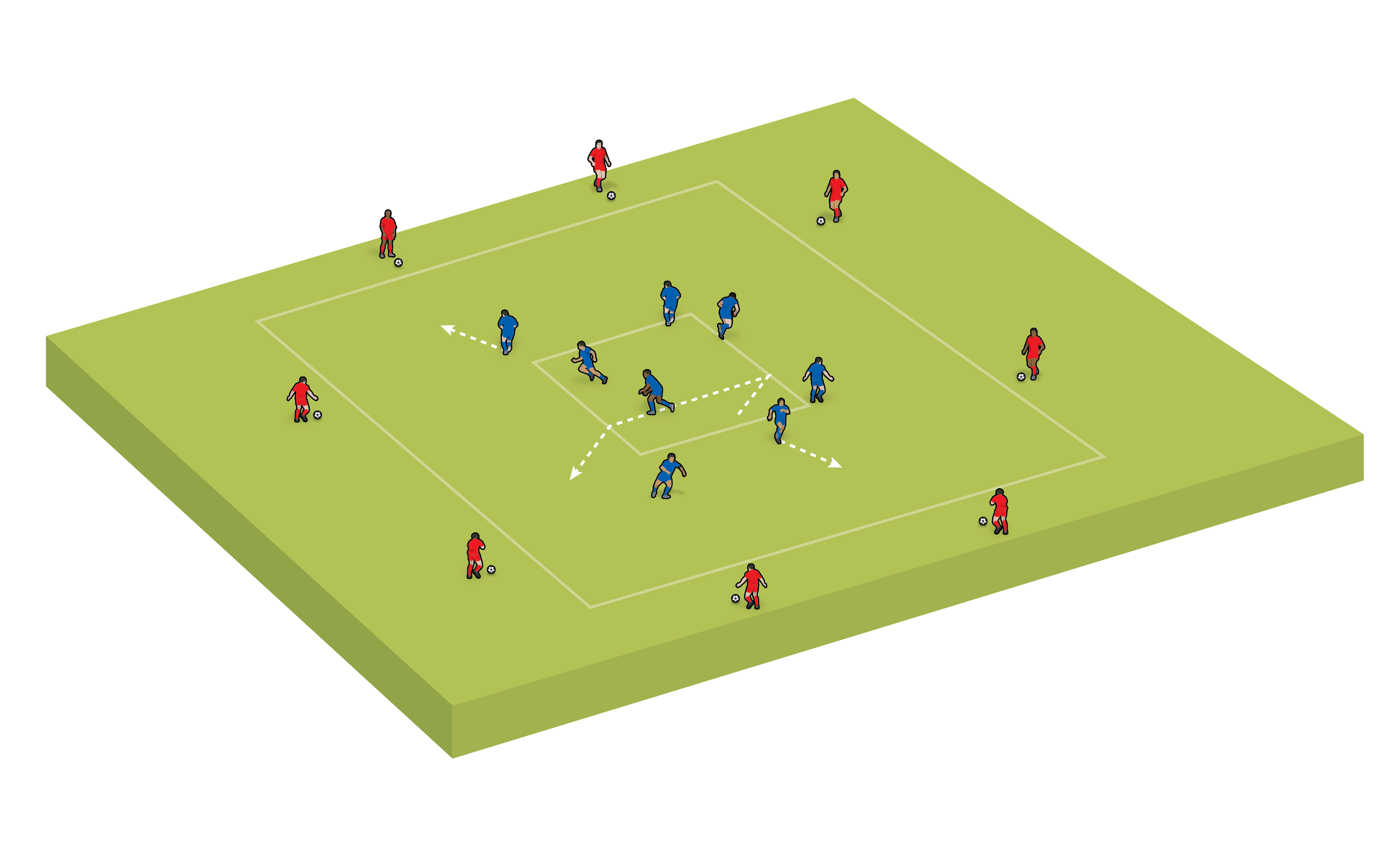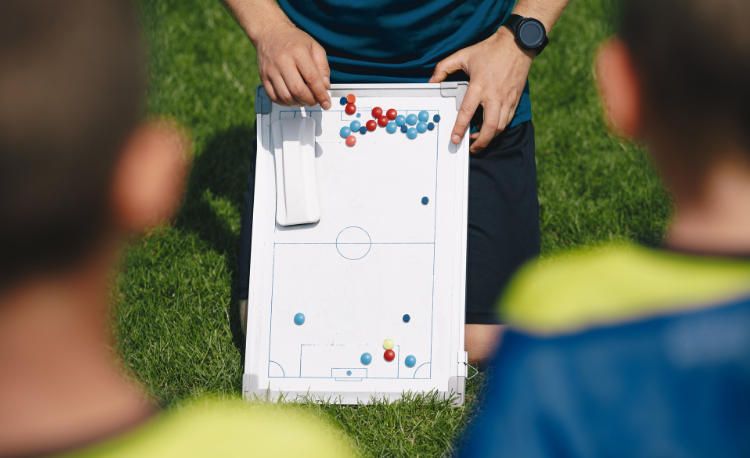Should you ever join in with training?
Always remember you are there as an observer, not a player. Here’s why...
It is not uncommon to see a coach taking part in their own sessions.
Onlookers – other coaches, parents, and even players themselves – will sometimes question if it is appropriate. The simple answer to this question is ‘no’ - here’s why...
It’s unsafe
Safety is the obvious reason why a coach should not join in with a practice.
No matter how much we tell ourselves that we will not tackle a player, and we are only there to make the numbers even, it only takes one mistake or a miscalculation for a player to get seriously hurt.
The safety of the players should always be our number one priority - and we should never do anything that puts this at risk.
You can’t coach
One of the main roles of a coach during training is to observe to ensure the practice design and set-up is effective and then make any changes where needed.
The coach then needs to switch their focus to observing the performance of the players and identifying when the right time is to provide support.
None of this is possible if you are taking part – you are no longer coaching, you are simply playing.
The environment isn’t real
A coach taking part in a session has an impact on the realism of the environment.
Every one of the coach’s actions – all of the passes they complete and all of the interceptions they make – will be different to those made by everyone else in the session.
For example, a player may make a particular forward pass that would normally be successful and provide a team-mate with a goalscoring opportunity.
But, because the coach is physically bigger and quicker, and because they have better positional understanding due to their greater experience of the game, they are able to intercept the pass.
In their self-reflection, the player who made the pass might then think they have made the wrong decision or executed it incorrectly, when in fact they have done everything right.
Exceptions to the rule
On occasion it can be beneficial for a coach to take part in a session - but only if it is in a role that does not require much involvement and/or any contact.
"A coach taking part in a session has an impact on the realism of the environment..."
The two roles a coach can adopt within a session that fit those rules are either as a server or a target player.
Being a server and starting the practice is not very involved and means the coach can still observe and provide players with support while they are active. Essentially, once the coach has played the initial pass, they are no longer needed.
Taking on the role of a target player requires more involvement as the players in possession will constantly be looking to play the ball to the coach.
In this instance, it is important that the coach remembers what their main purpose is within the practice: to actually coach.
Therefore, you must limit your involvement to being in a position to receive the ball. Your focus must remain on observing and supporting the players. If this involves having to leave the role of being the target player at points, don’t hesitate to do so.
Ultimately, there are always more effective solutions than a coach joining in with a session.
If there are an odd number of players in a session, one team can play with a player less, with the coach carefully choosing the teams. Goal sizes, or the mode of scoring, could also be altered.
If a coach feels the tempo of the practice needs increasing, they can consider adding a challenge or scoring system that encourages the players to play quicker.
The key reminder for us all is that there is rarely any need for us to join in a session: we are there to coach, not to play.
Related Files
Newsletter Sign Up
Coaches Testimonials

Gerald Kearney, Downtown Las Vegas Soccer Club

Paul Butler, Florida, USA

Rick Shields, Springboro, USA

Tony Green, Pierrefonds Titans, Quebec, Canada
Subscribe Today
Discover the simple way to become a more effective, more successful soccer coach
In a recent survey 89% of subscribers said Soccer Coach Weekly makes them more confident, 91% said Soccer Coach Weekly makes them a more effective coach and 93% said Soccer Coach Weekly makes them more inspired.
*includes 3 coaching manuals
Get Weekly Inspiration
All the latest techniques and approaches
Soccer Coach Weekly offers proven and easy to use soccer drills, coaching sessions, practice plans, small-sided games, warm-ups, training tips and advice.
We've been at the cutting edge of soccer coaching since we launched in 2007, creating resources for the grassroots youth coach, following best practice from around the world and insights from the professional game.
